It is the privilege of the rich and the powerful to preach to others -- without having to bother about whether they are delivering what they ask others to do. John Snow, the US treasury secretary, can come to India and tell everyone he meets that India must open up its financial markets -- but not do the same himself when it comes to US policy.
To be sure, American policy is liberal on paper, but ask Indian bankers what happens when they try to set up a branch in the US because they quickly come up against what are called non-tariff barriers to entry.
According to the story related by the head of a large Indian bank, he was first told on applying for a licence to open a branch in the US that he would need systems to make sure his bank was not being used by terrorists and drug cartels to move illegal money around.
Internal safety checks would not do, India needed a law. So India passed a law. But now the bank is being told that the US wants to wait for a couple of years and see how the new law works in practice. The short point: no licence to operate in the US.
In comparison, though American banks in India complain about restrictive branch licensing policies adopted by the Reserve Bank and about curbs on their buying up local banks, they have nevertheless been able to operate hundreds of automated teller machines that are as good as bank branches for 90 per cent of customer transactions.
Also, Citigroup has set up a financial services subsidiary that is merrily opening new branches, just as General Electric is doing through its financial services arm. These companies are not banks and cannot therefore offer cheque facilities or take retail deposits, but they operate freely in the home and vehicle loan markets, in the corporate debt market and in most other fields where banks operate.
It is fair to ask: who needs to open up first when it comes to financial services: the US or India? We don't know what Mr Snow's Indian interlocutors told him when he gave them his blunt message, but one hopes they know that the shoe pinches on the other foot as well and said so.
This is of a piece with what the US and other developed economies are doing when it comes to trade. Even as they preached the virtues of free trade to the poor countries for decades, the west practised open protectionism in (for instance) the textile trade.
Even after the Uruguay Round of trade talks said at the end of a bitter fight that the textile trade would be opened up, there was a 10-year transition period before any action was to take place.
And now that trade has been freed up at the end of this long wait, the US has quickly jumped on China for its success in boosting textile exports and forced on it a "voluntary" bilateral agreement that limits Chinese exports to the US. So much then for the proponents of free trade.
History might be repeated at the Hong Kong trade talks next month under the Doha Development Round. An earlier ministerial meeting at Cancun broke up in chaos and had an abrupt end, in part (it is said) because a bunch of poor African countries protested at the huge subsidies that the US was giving to a handful of cotton farmers, mostly in Texas.
Indeed, if the key to the success of the Uruguay Round was textile trade, the key issue for the Doha Round is whether agricultural trade will be opened up.
The harsh truth is that in the decade since the Uruguay Round concluded, some of the rich countries have only increased their agricultural subsidies, and therefore made the situation worse for poor countries who cannot match this scale of subsidy spending and therefore get priced out of lucrative markets.
Some commentators have coined a new phrase to replace free trade - they call for "fair trade". Well, what the West practises in these and other areas is neither free nor fair trade.

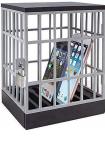
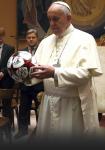
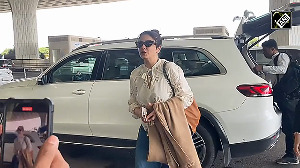
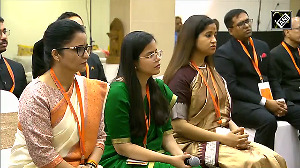
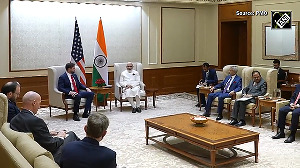
 © 2025
© 2025